
Ecuadorean soldiers carried away the bodies of Colombian guerrillas killed by the Colombian military during a raid of a rebel camp in Ecuador on March 1. The raid set off a diplomatic crisis.
Files Suggest Venezuela Bid to Aid Colombia Rebels
BOGOTÁ, Colombia — Files provided by Colombian officials from computers they say were captured in a cross-border raid in Ecuador this month appear to tie Venezuela’s government to efforts to secure arms for Colombia’s largest insurgency.
Officials taking part in Colombia’s investigation of the computers provided The New York Times with copies of more than 20 files, some of which also showed contributions from the rebels to the 2006 campaign of Ecuador’s leftist president, Rafael Correa.
If verified, the files would offer rare insight into the cloak-and-dagger nature of Latin America’s longest-running guerrilla conflict, including what appeared to be the killing of a Colombian government spy with microchips implanted in her body, a crime apparently carried out by the rebels in their jungle redoubt.
The files would also potentially link the governments of Venezuela and Ecuador to the leftist guerrillas of the Revolutionary Armed Forces of Colombia, or FARC, which the United States says is a terrorist group and has fought to overthrow Colombia’s government for four decades.
Though it was impossible to authenticate the files independently, the Colombian officials said their government had invited Interpol to verify the files. The officials did not want to be identified while any Interpol inquiry was under way.
Both the United States and Colombia, Washington’s staunchest ally in the region, have a strong interest in undercutting President Hugo Chávez of Venezuela, who has sought to counter United States influence by forming his own leftist bloc in the region. But the Colombian officials who provided the computer files adamantly vouched for them.
The files contained touches that suggested authenticity: they were filled with revolutionary jargon, passages in numerical code, missives about American policy in Latin America and even brief personal reflections like one by a senior rebel commander on the joy of becoming a grandfather.
Other senior Colombian officials said the files made public so far only scratched the surface of the captured archives, risking new friction with Venezuela and Ecuador, both of whom have dismissed the files as fakes.
Vice President Francisco Santos said Colombia’s stability was at risk if explicit support from its neighbors for the FARC, the country’s largest armed insurgency, was proved true. “The idea that using weapons to topple a democratic government has not been censured,” Mr. Santos said in an interview, “is not only stupid — it is frankly frightening.”
Colombia’s relations with its two Andean neighbors veered suddenly toward armed conflict after Colombian forces raided a FARC camp inside Ecuador on March 1, killing 26 people, including a top FARC commander, and capturing the computers, according to the Colombians.
Though tensions ebbed after a summit meeting of Latin American nations in the Dominican Republic this month, the matter of the computer files has threatened to reignite the diplomatic crisis caused by the raid.
Shortly after the crisis erupted, Colombian officials began releasing a small portion of the computer files, some of which they said showed efforts by Mr. Chavez’s government to provide financial support for the FARC.
Defense Minister Juan Manuel Santos said in an interview that officials had obtained more than 16,000 files from three computers belonging to Luis Édgar Devia Silva, a commander known by his nom de guerre, Raúl Reyes, who was killed in the raid. Two other hard drives were also captured, he said.
“Everything has been accessed and everything is being validated by Interpol,” Mr. Santos said, adding that he expected the work on the validation to be completed by the end of April. “It is a great deal of information that is extremely valuable and important.”
Mr. Santos, who said the computers survived the raid because they were in metal casing, strongly defended Colombia’s military foray into Ecuador, which drew condemnation in other parts of Latin America as a violation of Ecuador’s sovereignty.
“Personally I do not regret a thing, absolutely nothing, but I am a minister of a government that has agreed this type of action would not be repeated,” he said. “Of course, this depends on our neighbors collaborating on the fight against terrorism.”
For his part, Mr. Chávez, in a meeting with foreign journalists last week in Caracas, lashed out at Colombia’s government and mocked the files.
“The main weapon they have now is the computer, the supposed computer of Raúl Reyes,” Mr. Chávez said. “This computer is like à la carte service, giving you whatever you want. You want steak? Or fried fish? How would you like it prepared? You’ll get it however the empire decides.”
The correspondence also pointed to warm relations between Venezuela’s government and the FARC.
Officials here said they believed that the official in question was Gen. Hugo Carvajal, the director of military intelligence in Venezuela, a confidant of Mr. Chávez and perhaps Venezuela’s most powerful intelligence official.
In other correspondence from September 2004 after the killing by the FARC of six Venezuelan soldiers and one Venezuelan engineer on Venezuelan soil that month, General Carvajal’s longstanding ties to the guerrillas also come into focus. In those letters, the guerrillas describe talks with General Carvajal, Mr. Chávez’s emissary to deal with the issue.
“Today I met with General Hugo Carvajal,” a FARC commander wrote in on letter dated Sept. 23, 2004. “He said he guarded the secret hope that what happened in Apure,” the rebel wrote in reference to the Venezuelan border state where the killings took place, “was the work of a force different from our own.”
Officials in General Carvajal’s office at the General Directorate of Military Intelligence in Caracas did not respond to requests for comment on the letters. Mr. Chávez responded to a report earlier this year in Colombia claiming that General Carvajal provided logistical assistance to the FARC by calling it an “attack on the revolution” he has led in Venezuela.
Another file recovered from Mr. Devia’s computers, dated a week earlier on Jan. 18, 2007, described efforts by the FARC’s secretariat to secure Mr. Chávez’s assistance for buying arms and obtaining a $250 million loan, “to be paid when we take power.”
The FARC, a Marxist-inspired insurgency that has persisted for four decades, finances itself largely through cocaine trafficking and kidnappings for ransom. But other files from the computers suggested that Colombia’s counterinsurgency effort, financed in large part by $600 million a year in aid from Washington, was making those activities less lucrative for the FARC, forcing it to consider options like selling Venezuelan gasoline at a profit in Colombia.
The release of the files comes at a delicate time when some lawmakers in Washington are pressing for Venezuela to be included on a list of countries that are state sponsors of terrorism. But with Venezuela remaining a leading supplier of oil to the United States, such a move is considered unlikely because of the limits on trade it would entail.
Moreover, interpretations of the files from Mr. Devia’s computers have already led to some mistakes.
For instance, El Tiempo, Colombia’s leading daily newspaper, issued an apology this month to Gustavo Larrea, Ecuador’s security minister, after publishing a photograph obtained from the computers in which the newspaper claimed Mr. Larrea was shown meeting with Mr. Devia at a FARC camp. In fact, the photograph was of Patricio Etchegaray, an official with the Communist Party in Argentina.
Still, the files from Mr. Devia’s computers are expected to haunt relations between Colombia, Ecuador and Venezuela for some time.
For instance, one piece of correspondence dated Nov. 21, 2006, and circulated among the FARC’s secretariat, describes a $100,000 donation to the campaign of Mr. Correa, Ecuador’s president.
Of that amount, $50,000 came from the FARC’s “Eastern bloc,” a militarily strong faction that operates in eastern Colombia, and $20,000 from the group’s “Southern bloc,” according to the document.
President Álvaro Uribe of Colombia referred this month to files from Mr. Devia’s computers showing financing of Mr. Correa’s campaign by the FARC, but he stopped short of releasing them after tensions eased at the summit meeting in the Dominican Republic.
“Any archive is not valid until it is verified,” said Pedro Artieda, a spokesman at the Ecuadorean Foreign Ministry, when asked for comment. “Therefore, the government cannot comment on something that is not confirmed.” Mr. Correa had previously disputed the campaign-finance claims based on the computers files, saying they lacked “technical and legal” validity.
Other files offer insight into the methods employed both by the FARC and Colombia’s government in their four-decade war. In one letter by Mr. Devia dated Jan. 5, 2007, to Manuel Marulanda, the most senior member of the FARC’s secretariat, he described a woman in their ranks who was discovered to be a government spy.
“The new thing here,” Mr. Devia wrote, “was that she had two microchips, one under her breast and the other beneath her jaw.”
Mr. Devia went on to describe the reaction to this discovery, explaining in the rebels’ slang that she was given “a course.”
“Yesterday they threw her into the hole after proving what she was,” he wrote, “and giving her the counsel of war.”
The New York Times
 Afirma The New York Times tener pruebas de nexos Venezuela-FARC
Afirma The New York Times tener pruebas de nexos Venezuela-FARCEl rotativo neoyorquino dijo que los archivos también contienen información sobre un espía del gobierno colombiano, quien habría sido capturado cuando tenía microchips implantados en su cuerpo.
Los archivos hallados en el ordenador de "Raúl Reyes", "numero dos" de las FARC y muerto el pasado 1 de marzo en Ecuador, revelan el posible apoyo de Venezuela a esa guerrilla, publicó hoy The New York Times. El diario neoyorquino aseguró haber tenido acceso a una veintena de estos archivos informáticos, logrados tras la operación militar colombiana contra un campamento de las FARC en territorio ecuatoriano, incursión que desató un grave conflicto diplomático entre Colombia, Ecuador y Venezuela.
Los archivos a los que tuvo acceso The New York Times, según la información que publica hoy en portada, no solo revela que Venezuela ha suministrado armas a la insurgencia colombiana, sino también las contribuciones que la guerrilla hizo en 2006 a la campaña del actual presidente de Ecuador, Rafael Correa.
El New York Times aseguró que le fue imposible verificar la autenticidad de los archivos de manera independiente, si bien señaló que oficiales colombianos invitaron a agentes de la Interpol a realizar esta tarea.
No obstante, afirmó que los archivos tienen elementos que "sugieren autenticidad", pues fueron archivados en el ordenador bajo jerga revolucionaria y con códigos numéricos, y recogen desde cartas sobre la política estadounidense en Latinoamérica, hasta reflexiones personales de uno de los rebeldes de mayor grado al convertirse en abuelo.
Otros oficiales colombianos explicaron a The New York Times que los archivos mostrados hasta ahora solo son la punta del iceberg de toda la información que poseen, y que podría causar nuevas fricciones entre Colombia y Ecuador, así como con Venezuela.
En una entrevista con el diario, el Ministro de Defensa de Colombia, Juan Manuel Santos, aseguró que hallaron más de 16.000 archivos de tres ordenadores que pertenecieron a Luis Édgar Devia Silva, alias "Raúl Reyes", muerto en la incursión militar colombiana en suelo ecuatoriano, el pasado 1 de marzo.
El ministro explicó que tanto estos archivos como otros contenidos en dos discos duros adicionales que fueron incautados, van a ser verificados por la Interpol, y que espera que la validación esté concluida al final del mes de abril.
Entre otros archivos, los ordenadores contienen una carta fechada en enero de 2007 en la que uno de los líderes guerrilleros, "Iván Márquez", explicaba el contenido de una reunión con un oficial venezolano llamado Carvajal.
Según decía el documento, "Carvajal se fue con el compromiso de traer un comerciante de armas de Panamá", el New York Times apuntó a que Carvajal podría ser el director de la unidad de inteligencia militar de Venezuela, Hugo Carvajal, un poderoso confidente de Hugo Chávez.
En otra carta, de septiembre de 2004, se describen las conversaciones que mantuvo las FARC con Carvajal tras el asesinato por la guerrilla de seis soldados y un ingeniero, todos ellos venezolanos.
Otro archivo, de enero de 2007, describe los esfuerzos de las FARC por lograr la asistencia de Chavez para comprar armas y lograr un préstamo de 250 millones de dólares, que "pagaremos cuando lleguemos al poder".
Otro de los documentos, que circuló en noviembre de 2006, describe la donación de 100.000 dólares que se hizo a la campaña del entonces candidato presidencial en Ecuador, Rafael Correa.
Los ordenadores también contienen datos del día a día en la lucha contra el Gobierno colombiano, como una carta de enero de 2007, en la que "Raul Reyes" habla de cuando descubrió a una espía del Gobierno colombiano infiltrada en las FARC.
http://www.megaresistencia.com/portada/content/view/1733/1/
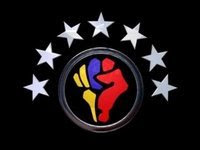



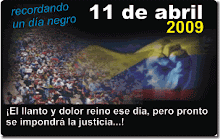



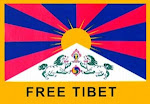
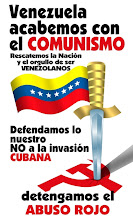






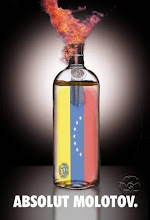
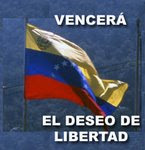
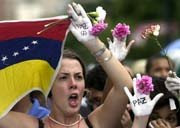
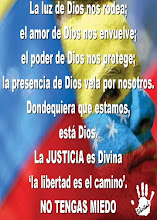
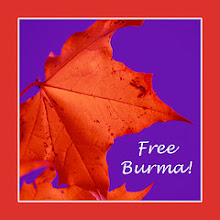

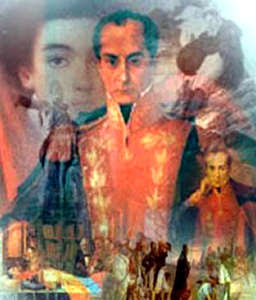
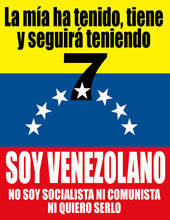
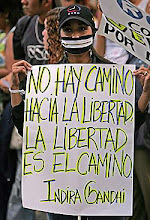




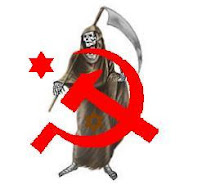
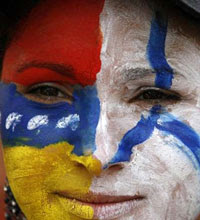
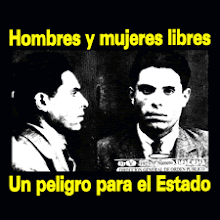
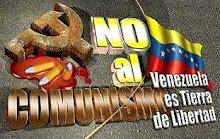
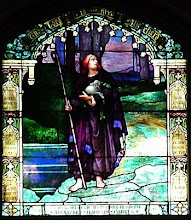
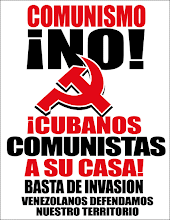


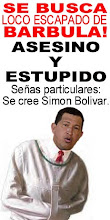
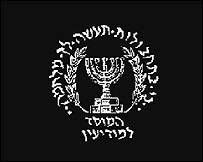
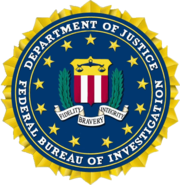
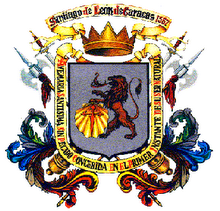


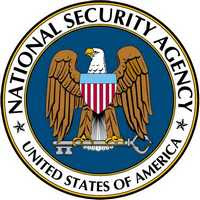


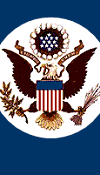
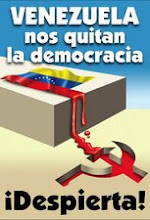





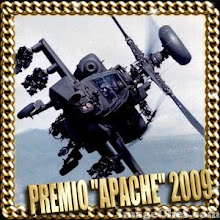

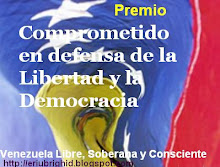
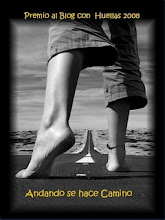
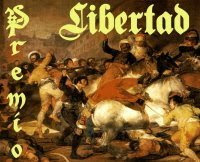



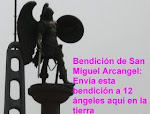


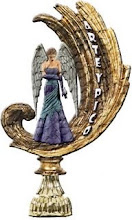












1 comentario:
http://www.paris.chumaka.com un abrazo a venezuela desde españa!!
Publicar un comentario